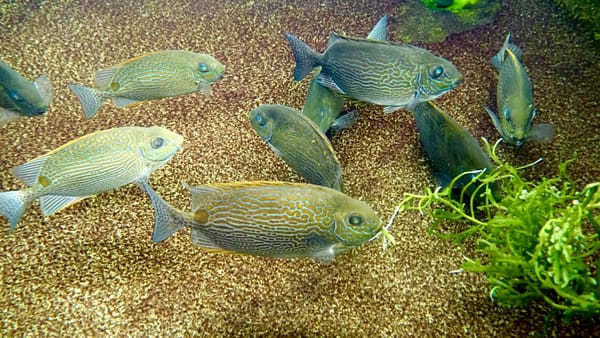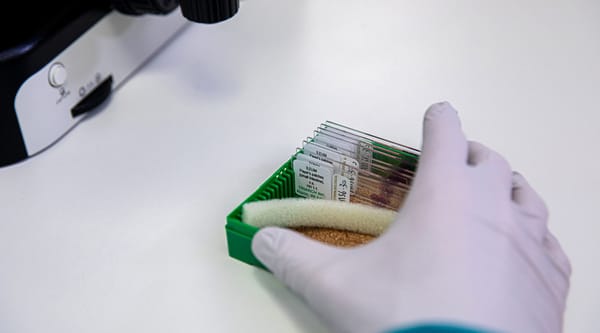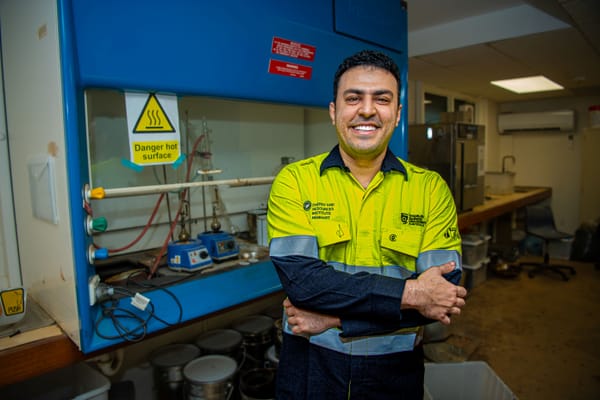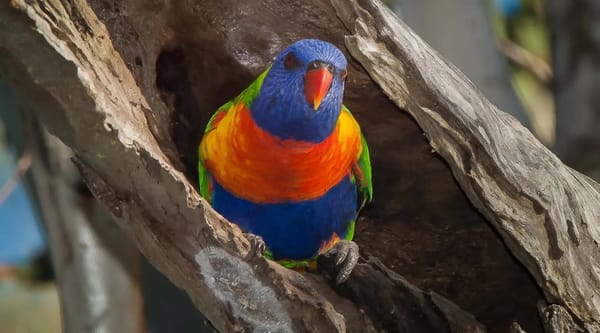Sound solution for struggling coral reefs: new documentary charts Our Changing Planet
The new season of the BBC’s Our Changing Planet explores what happens when Southern Cross University’s coral fertility doctor uses recordings of fish sounds to lure baby corals onto the reef.
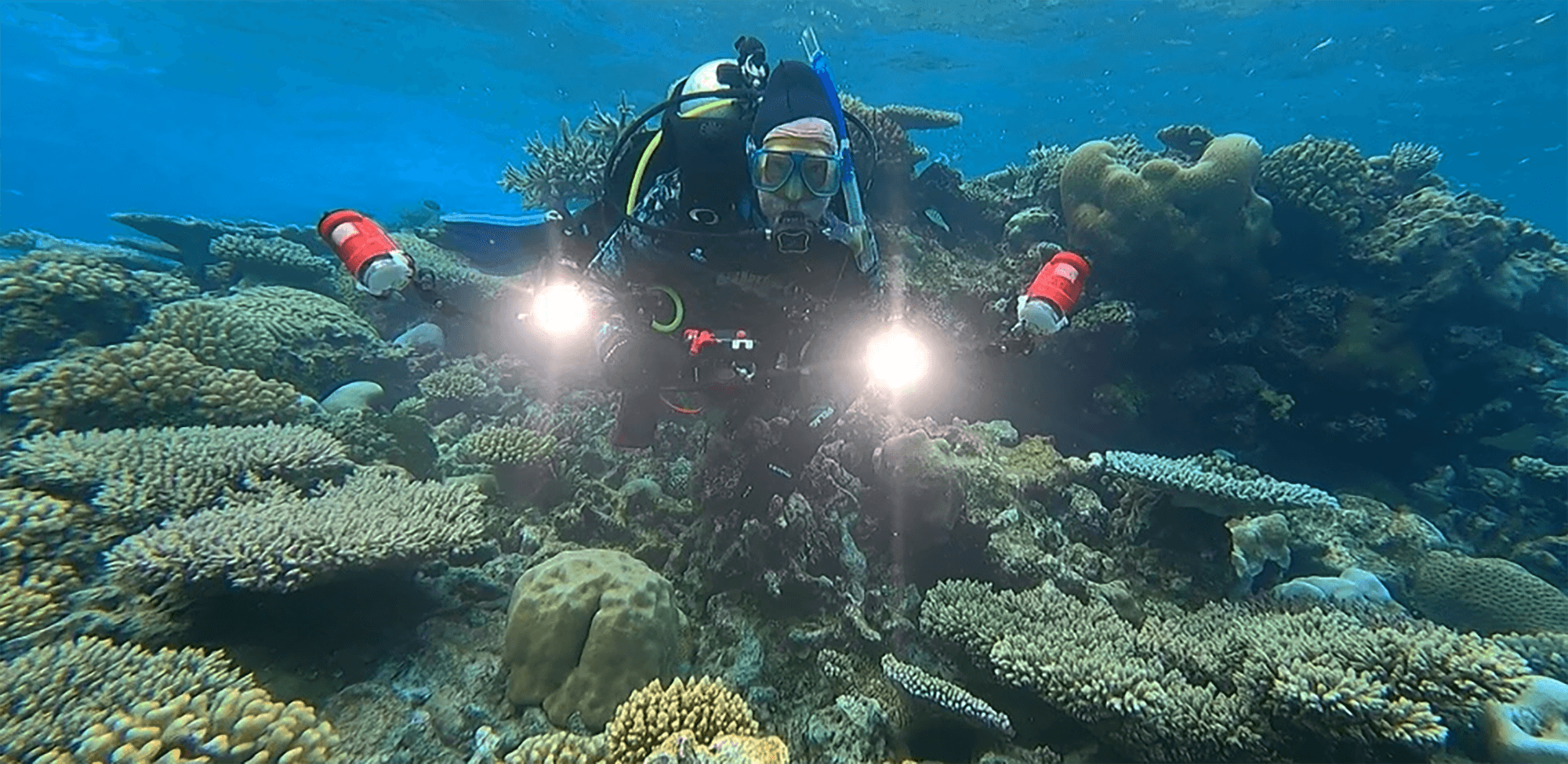
First published on Southern Cross University
The new season of the BBC’s Our Changing Planet explores what happens when Southern Cross University’s coral fertility doctor uses recordings of fish sounds to lure baby corals onto the reef.
The world-first collaboration between Southern Cross University’s Distinguished Professor Peter Harrison and Professor Steve Simpson from Bristol University (UK) could prove a gamechanger for reef restoration.
The pair tested coral larval reactions to various sound recordings before releasing microscopic baby corals onto degraded areas of reef in the Maldives.
Professor Harrison’s coral larval restoration technique, known as Coral IVF, helps corals reproduce more successfully by allowing coral larvae to develop in the safety of a floating nursery before release on degraded reefs.
For many years Professor Simpson has been working on acoustic research to attract juvenile reef fish to settle on reefs. His most recent work has indicated that coral larvae, too, move towards the sound of a healthy reef. Remarkably, some fish vocalisations appear to trigger coral larvae to alter their swimming trajectory towards healthy reef sounds before sinking to the bottom to settle and grow.
“It was fascinating to see some of the coral larvae start to alter behaviour in response to sound recordings from healthy reefs.”
/prod01/channel_8/media/scu-dep/news/images/2024/Peter-Harrison-in-resort-lab-with-a-view_credit-Peter-Harrison-low-res.png)
Distinguished Professor Peter Harrison
Coral ecologist, Southern Cross University
The highly respected marine scientists joined forces for the first time in the Maldives in March 2023 as part of a research collaboration filmed exclusively by the BBC’s Natural History Unit.
“It was fascinating to see some of the coral larvae start to alter behaviour in response to sound recordings from healthy reefs that have rich acoustic soundscapes of fish and other organisms. Whereas recordings from badly degraded reefs with fewer fish and acoustic signals had no obvious effect on larval behaviour,” said Professor Harrison.
“This result is exciting as it offers a new pathway for enhancing coral and reef restoration to increase the scale of larval settlement through acoustic enrichment.”
Nine months later in Australia, the respective research teams followed-up with a controlled laboratory experiment at the Lizard Island Research Station, at the northern end of the Great Barrier Reef, in December 2023.
“Once again, the results showed that sound recorded from healthy reefs increased the rate of larval settlement, supporting the idea that sound may be an important trigger for larval settlement,” said Professor Harrison.
/prod01/channel_8/media/scu-dep/news/images/2024/Peter-Harrison-w-Sanjayan-PBS-and-Steve-Simpson-of-Bristol-Uni_IMG_5569-credit-Peter-Harrison-720X475.jpg)
The Our Changing Planet series charts the world's most threatened ecosystems over a period of seven years, offering a unique global portrait of extraordinary change and the hope of ground breaking solutions. The third series is Restoring Our Reefs.
Naturalist Steve Backshall hosts the series for the BBC in the UK, while in the US on PBS Dr M Sanjayan is the host.
The documentary comes at a critical time. Worldwide, coral reefs are at crisis point. Earlier this month, the US climate agency NOAA (National Oceanic and Atmospheric Administration) declared a global mass coral bleaching event, for just the fourth time in history, after a year of extreme ocean heat.
This follows confirmation in March 2024 that the Great Barrier Reef is experiencing widespread bleaching spanning two-thirds of the marine park.
Corals bleach and die when the ocean is too warm for too long. Half of all coral reef communities have already been lost or severely damaged. Experts predict that, without action, nearly all reefs could die off in the next 20 to 30 years. Learn more about coral bleaching.
Our Changing Planet: Restoring Our Reefs
Audiences in the UK (via BBC) and USA (via PBS) were treated to the premiere of Our Changing Planet: Restoring Our Reefs to coincide with Earth Day (April 22). Australian audiences will have to wait.
/prod01/channel_8/media/scu-dep/news/images/2024/Floating-coral-nursery-pools-in-Maldives-IMG_5591_credit-Peter-Harrison-720X475.jpg)

